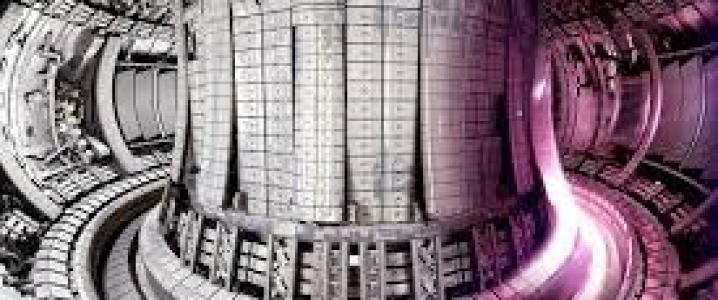Authored by Irina Slav via OilPrice.com,
The predictive powers of artificial intelligence could help scientists bring nuclear fusion closer to actually working, researchers from Princeton and Harvard working with the Department of Energy hope.
The team, working at the DoE’s Princeton Plasma Physics Laboratory, says they have applied deep learning techniques to computers in order to be able to forecast sudden outages in the reactors used for nuclear fusion that can halt the energy-generating reaction.
The implications of a success here could be major: nuclear fusion can theoretically supply emissions-free electric power indefinitely. However, making the leap from theoretical to practical has proved challenging.
Nuclear fusion, unlike fission, which is what takes place in traditional reactors, involves smashing particles together and turning them into plasma to generate energy. This takes place in what is called a magnetic fusion machine, or a tokamak. The tokamak produces magnetic fields that keep the superhot plasma inside and keep it moving—and hot—but controlling it for ever-longer periods of time and making it move faster to produce more energy has been a challenge.
Many believe we will never be able to make nuclear fusion happen, but researchers are not giving up. Computer technology is a natural ally to scientists in this quest for infinite clean power, but the presence of data to feed into the computers has proved crucial.
The Princeton and Harvard scientists used data from two fusion reactors: the Department of Energy’s DIII-D National Fusion Facility in California, operated by General Atomics, and the Joint European Torus tokamak in the UK. What the team learns about predicting outages will be applied to the largest tokamak that is currently in construction in the ITER project in Europe. It may just help solve fusion’s biggest problem: why the particle smashing sometimes stops.
If this problem is solved, the world could see a working nuclear reactor in less than 20 years, although many scientists and observers remain skeptical.
via ZeroHedge News http://bit.ly/2KPDWZG Tyler Durden
